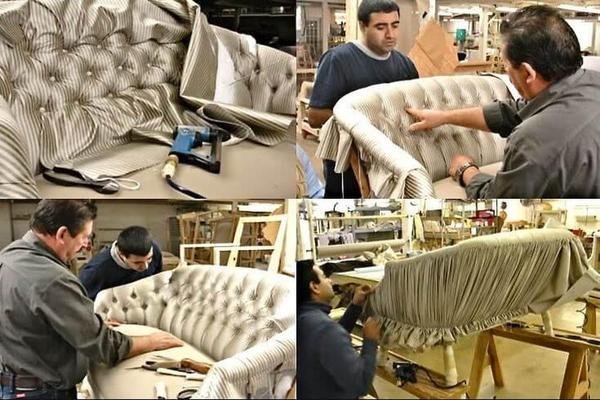Upholstery can easily stain from spills, pet accidents, or general use. It’s important to clean up spills promptly to avoid permanent damage. Frequent use of furniture can cause wear and tear on the upholstery. Over time, this can cause fraying, tears, and other damage. Sunlight and other environmental factors can cause upholstery to fade over time, especially if the furniture is placed in a sunny location. Upholstery can absorb odors over time, such as from pets, smoking, or cooking. This can be difficult to remove and may require professional cleaning. Upholstery can trap dust and allergens, which can be problematic for people with allergies or respiratory issues. Regular cleaning and maintenance can help reduce these issues.
Undeniable Facts about Upholstery
Here are some undeniable facts about upholstery: Upholstery refers to the materials used to cover furniture, such as sofas, chairs, and beds. These materials can include fabrics, leather, vinyl, and other materials. Upholstery provides comfort and style to furniture. It can be used to add color and texture to a room, as well as to make furniture more comfortable and inviting. Regular cleaning and maintenance are important to keep upholstery looking and feeling its best. This can include vacuuming, spot cleaning, and professional cleaning services. Upholstery can be customized to suit individual tastes and preferences. There are many options available for colors, patterns, and textures, as well as different types of materials to choose from. Upholstery can be a significant investment in furniture, but it can also extend the lifespan of furniture by protecting it from wear and tear. Proper maintenance and care can help furniture last longer and maintain its appearance. Upholstery can also affect the health and well-being of those using the furniture. For example, allergens and dust mites can accumulate in upholstery, which can be problematic for people with allergies or respiratory issues.
More on Making a Living Off of Upholstery
Upholstery requires a set of specialized skills, including knowledge of different types of fabrics, tools, and techniques. Consider taking classes or workshops to develop your skills and learn new techniques. As you gain experience, create a portfolio of your work to showcase your skills and build a reputation in the industry. Share your work on social media, and consider building a website to showcase your portfolio and services. Upholstery can encompass a wide range of services, from furniture restoration to custom design work. Consider specializing in a particular area to stand out from the competition and target a specific market. Join local trade associations and attend industry events to network with other professionals in the field. Consider advertising your services in local newspapers or on social media. Upholstery often involves working closely with clients to understand their needs and preferences. Provide excellent customer service by communicating clearly, meeting deadlines, and being responsive to their needs. Determine fair prices for your services based on your level of experience, the complexity of the project, and the local market. Be transparent about your pricing and provide detailed estimates to avoid surprises for your clients.

